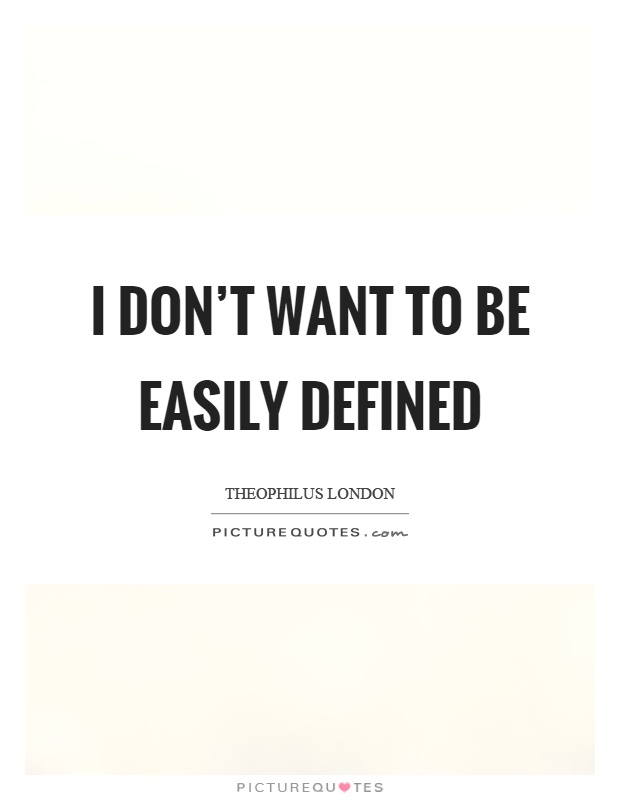

Stephan Lewandowsky, a psychologist at the University of Bristol whose research into misinformation began around the same time as Nyhan’s, conducted a review of misperception literature through 2012. Until recently, attempts to correct false beliefs haven’t had much success.
#I dont want to be series#
And so Nyhan, who had already enrolled in a doctorate program in political science at Duke, left Spinsanity behind to focus on what he now sees as the more pressing issue: If factual correction is ineffective, how can you make people change their misperceptions? The 2014 vaccine study was part of a series of experiments designed to answer the question. Their work was popular-it was syndicated by Salon and the Philadelphia Inquirer, and it led to a best-selling book-but the errors persisted. The result was Spinsanity, a fact-checking site that presaged venues like PolitiFact and the Annenberg Policy Center’s. Along with two classmates, Nyhan decided to try to create a forum dedicated to debunking political lies.

“The 2000 campaign was something of a fact-free zone,” he said. It was the middle of a messy Presidential campaign, and he was studying the intricacies of political science. Nyhan’s interest in false beliefs dates back to early 2000, when he was a senior at Swarthmore. “We were definitely depressed,” he repeated, after a pause. The other two interventions fared even worse: the images of sick children increased the belief that vaccines cause autism, while the dramatic narrative somehow managed to increase beliefs about the dangers of vaccines. It even decreased intent among parents who held the most negative attitudes toward vaccines, a phenomenon known as the backfire effect.

The first leaflet-focussed on a lack of evidence connecting vaccines and autism-seemed to reduce misperceptions about the link, but it did nothing to affect intentions to vaccinate. The result was dramatic: a whole lot of nothing. The goal was to test whether facts, science, emotions, or stories could make people change their minds. A control group did not receive any information at all. vaccine prevents photographs of children who had suffered from the diseases and a dramatic story from a Centers for Disease Control and Prevention about an infant who almost died of measles. They had followed a group of almost two thousand parents, all of whom had at least one child under the age of seventeen, to test a simple relationship: Could various pro-vaccination campaigns change parental attitudes toward vaccines? Each household received one of four messages: a leaflet from the Centers for Disease Control and Prevention stating that there had been no evidence linking the measles, mumps, and rubella (M.M.R.) vaccine and autism a leaflet from the Vaccine Information Statement on the dangers of the diseases that the M.M.R. Last month, Brendan Nyhan, a professor of political science at Dartmouth, published the results of a study that he and a team of pediatricians and political scientists had been working on for three years.


 0 kommentar(er)
0 kommentar(er)
